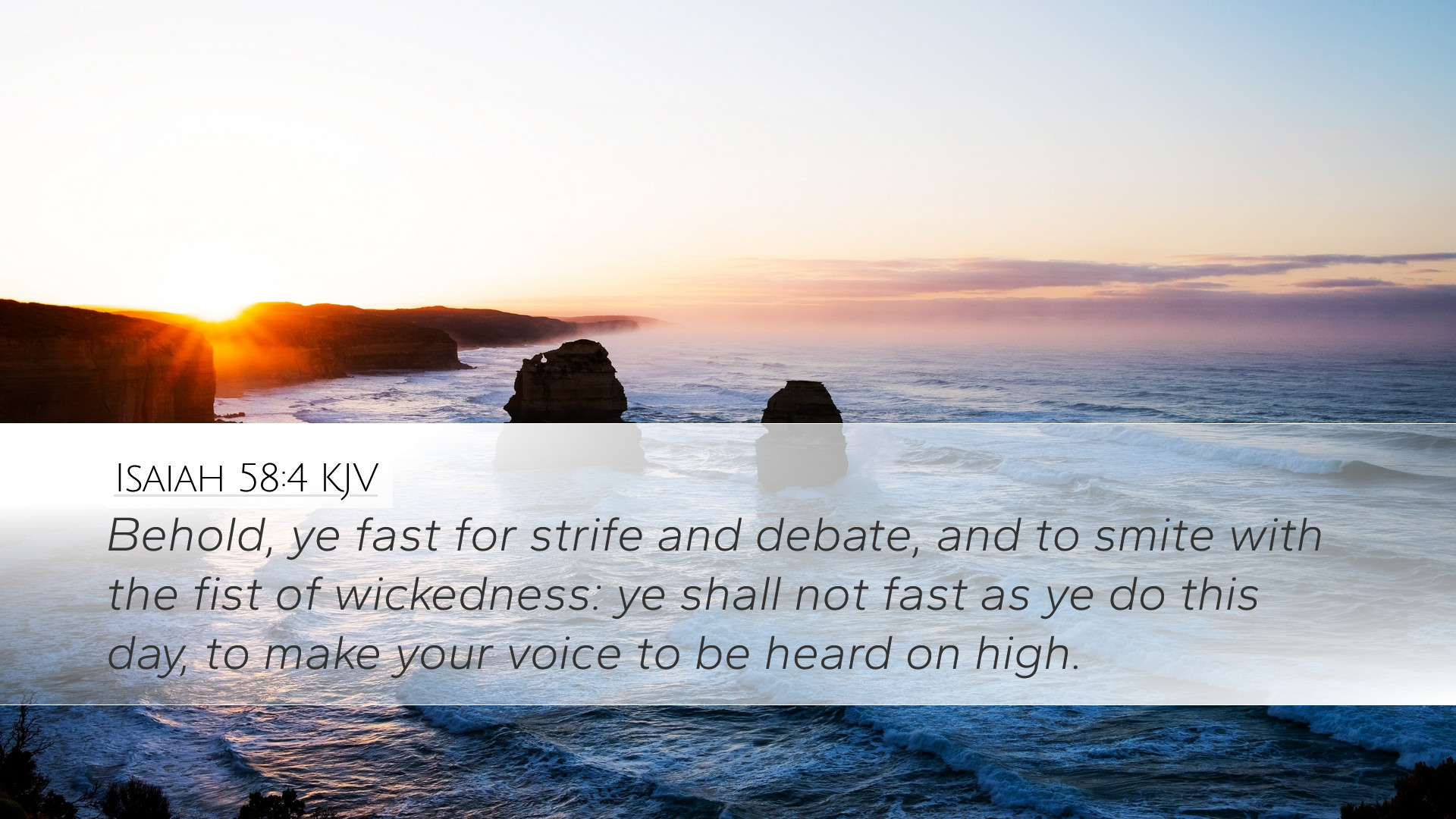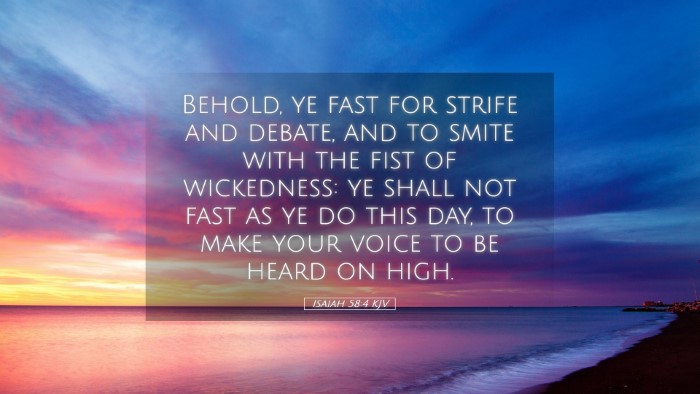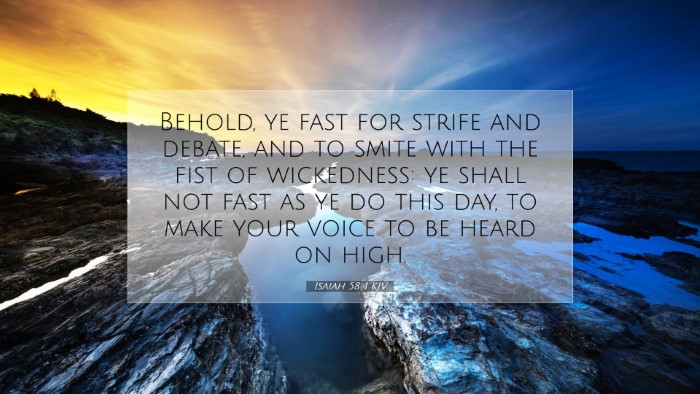Commentary on Isaiah 58:4
Isaiah 58:4 states: "Behold, ye fast for strife and debate, and to smite with the fist of wickedness: ye shall not fast as ye do this day, to make your voice to be heard on high." This verse addresses the God of Israel's perspective on the people's fasts and religious observances, emphasizing that mere acts of religion devoid of true righteousness and compassion are insufficient.
Contextual Background
The chapter is a part of a larger discourse in Isaiah where the people of Israel are criticized for their lack of genuine devotion. They engage in religious acts, particularly fasting, yet their hearts and intentions are misaligned with God's will. The prophet Isaiah serves as the mouthpiece of God, unveiling the hypocrisy of their practices.
Insights from Public Domain Commentaries
Matthew Henry
Henry highlights the contrast between true and false fasting. He notes that the Israelites fasted with the intent to gain God’s favor, but their actions betrayed their motives. The verse underscores that their fast was accompanied by strife and debate, indicating they were more concerned with their own agendas than with approaching God in sincerity. Henry points out that the fast was used as a cover for wickedness and malice, establishing that God turns His back on hypocritical worship.
Albert Barnes
Barnes elaborates on the nature of the fast that God rejects. He emphasizes that while the people think they are engaging in piety by fasting, their behavior towards others exposes their true nature. The highlight is on the phrase “to smite with the fist of wickedness,” which illustrates a society rife with injustice and conflict. The fast should elevate one's relationship with God and others, but their deeds suggest a failure. Barnes suggests that God desires a fast that promotes compassion, mercy, and a genuine expression of love towards others rather than mere ritualism.
Adam Clarke
Clarke provides a detailed analysis of the consequences of a false approach to fasting. He warns that the practice of fasting combined with contention does not achieve the intended spiritual benefits. Instead, it leads to futility in religious observance. Clarke indicates that the attempt to use fasting as a means to boost one’s voice in prayer, while one's life is marred with wickedness, is a significant misunderstanding of God’s character. He stresses the necessity of aligning one's actions and heart with the essence of true worship, which includes social justice and humility before God.
Theological Implications
This verse encapsulates a significant theological truth: God desires authentic worship grounded in love and righteousness. The hypocrisy shown by the Israelites serves as a cautionary reminder for contemporary believers and leaders. As pastors and theologians reflect on this passage, the essential themes of integrity, justice, and transformation must be emphasized.
Contrasting True and False Worship
- False Worship: Characterized by ritualistic practices divorced from morality.
- True Worship: Involves a holistic expression of faith that embodies love, care for others, and a repentant heart.
Application for Today’s Church
Leaders in the church can draw critical lessons from this text. The challenge is to ensure that practices of spirituality, such as fasting, prayer, and worship, are not performed in isolation from justice and ethical living. The call is to lead communities towards a fasting that facilitates reconciliation and restoration.
The Role of Community in Worship
Isaiah points towards a collective responsibility in worship; the attitude of individuals contributes to the community's spiritual health. Pastors should encourage congregational practices that emphasize unity and shared values, thereby ensuring that religious observances are not just personal but communal in spirit.
Conclusion
The message of Isaiah 58:4 remains profoundly relevant. It serves as a reminder that true worship is more than external signs—it requires internal transformation and sincere devotion. For pastors, students, theologians, and scholars, understanding this text deepens the call to pursue what is just, loving, and reflective of God’s character in all aspects of life.


